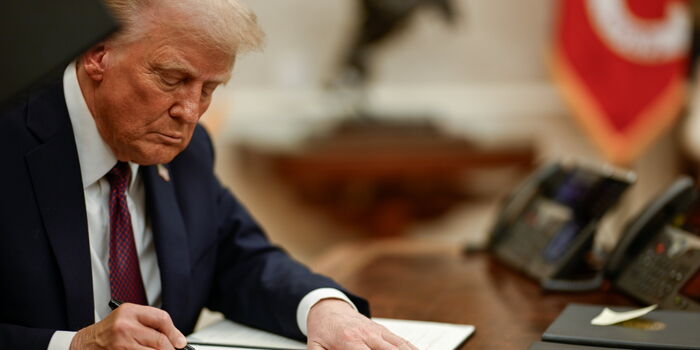Some employees of the United States Agency for International Development (USAID) in Kenya have resumed work after former US President Donald Trump’s administration partially lifted a freeze on foreign aid funding.
The decision comes as a relief to many who had been affected by the earlier suspension of funding.
Shortly after assuming office, Trump had ordered a 90-day halt on foreign development assistance, a move that disrupted programs in several countries, including Kenya.
The funding freeze raised concerns that thousands of Kenyan workers under USAID programs could lose their jobs if the situation was not reversed. Experts estimated that over 35,000 Kenyans were at risk of unemployment due to the suspension.
However, in a partial reversal, the US government has now announced a limited waiver for some of the affected programs. The waiver applies specifically to the President’s Emergency Plan for AIDS Relief (PEPFAR) program under USAID, allowing critical services related to HIV treatment and care to continue.
Restoration of HIV Services
The waiver temporarily reinstates USAID’s HIV/AIDS program, ensuring that essential medical care, treatment, and prevention services, including mother-to-child transmission prevention, remain available.
According to a statement from the US Department of State, the waiver prioritizes life-saving humanitarian assistance, specifically for health workers providing or monitoring HIV care.
“For the purpose of this limited waiver, life-saving humanitarian assistance applies only to the delivery of life-saving HIV care and treatment services through support for health workers—including doctors, nurses, and community health workers—who ensure the continuity of service provision,” the statement read.
Under the waiver, key services that can now continue include:
- HIV testing and treatment for all individuals diagnosed with the virus.
- Prevention of mother-to-child HIV transmission, which includes regular testing for pregnant and breastfeeding women, providing pre-exposure prophylaxis (PrEP) to HIV-negative women at risk, and administering HIV treatment to those who test positive.
- Early infant diagnosis for newborns exposed to HIV and comprehensive care for affected infants.
- Laboratory support to facilitate HIV diagnosis and treatment monitoring.
- Supply chain management to ensure the continued availability of HIV medication and prevent stockouts in national HIV programs.
- Tuberculosis (TB) screening and treatment for HIV-positive individuals.
- Screening and treatment for life-threatening cervical cancer among women living with HIV.
While these services have been restored, other at-risk populations outside of pregnant and breastfeeding women remain excluded from receiving PEPFAR-funded PrEP until further notice.
Health Workers’ Salaries Included in Waiver
The waiver also ensures that salaries for health workers, laboratory staff, and supply chain personnel involved in carrying out the approved services are covered. This provision allows critical staff to return to their roles without financial uncertainty.
In Kenya, the impact of this decision has already been felt. At least 568 USAID employees in Homa Bay County, who had been sent home due to the funding freeze, were instructed to return to work immediately on Friday, February 7.
Meanwhile, in the US, legal challenges to Trump’s decision to place USAID employees on paid leave are ongoing. A judge has temporarily blocked the move, indicating further legal battles over the administration’s handling of foreign aid.
The limited waiver offers hope to many affected workers and individuals relying on HIV services, but uncertainty remains regarding the full reinstatement of USAID’s foreign assistance programs.
Join Gen z and millennials TaskForce official 2025 WhatsApp Channel To Stay Updated On time the ongoing situation https://whatsapp.com/channel/0029VaWT5gSGufImU8R0DO30


